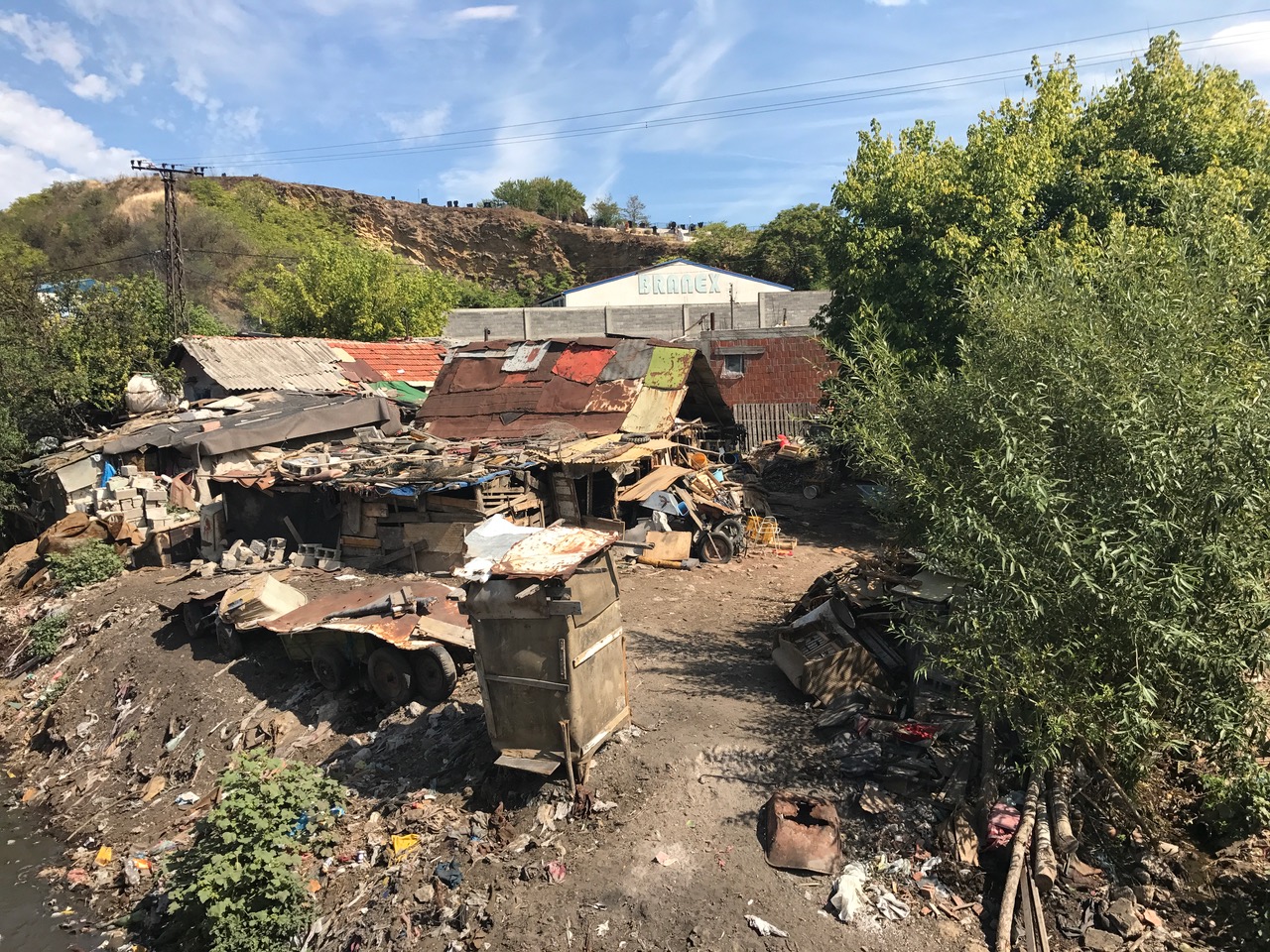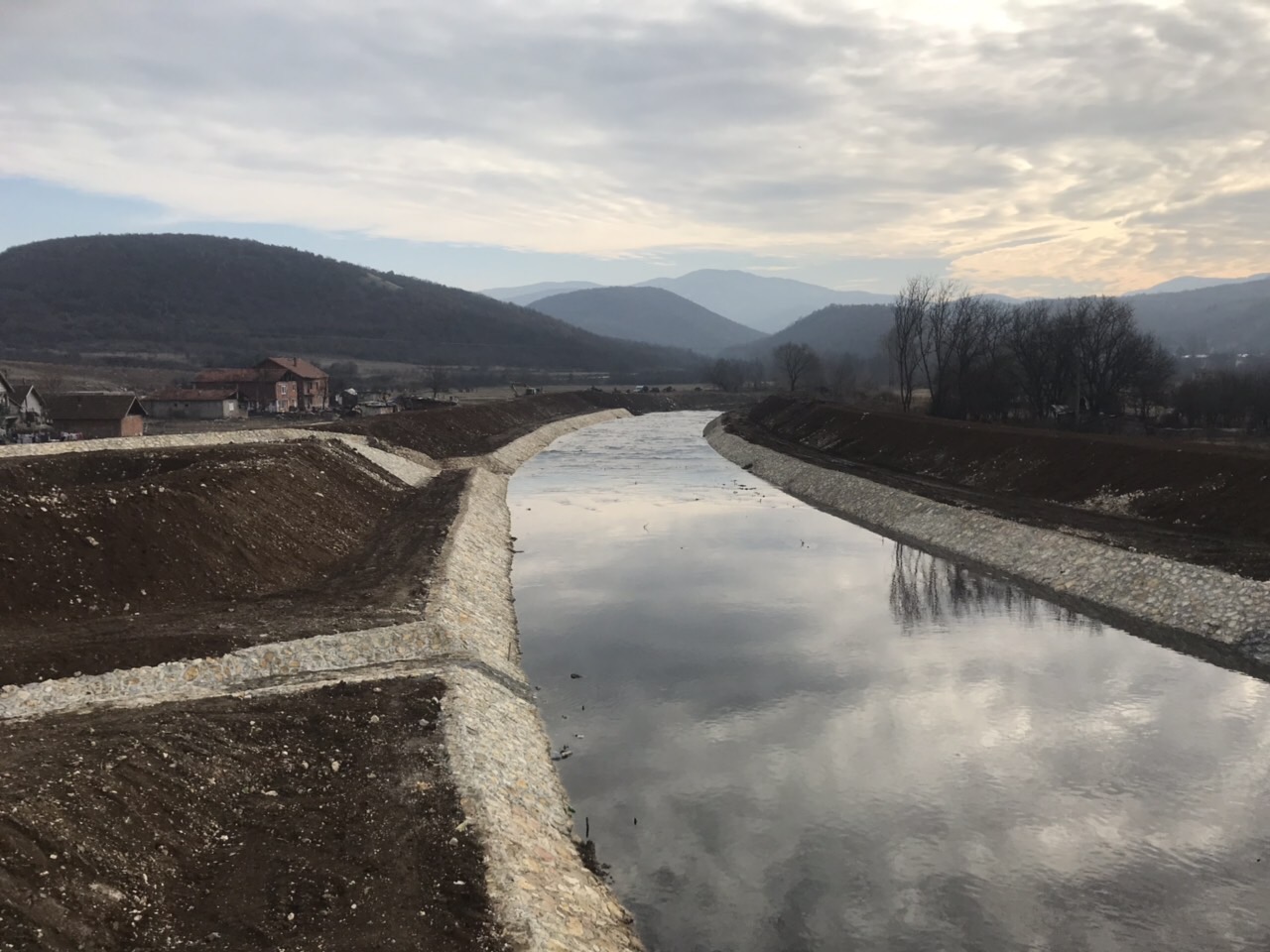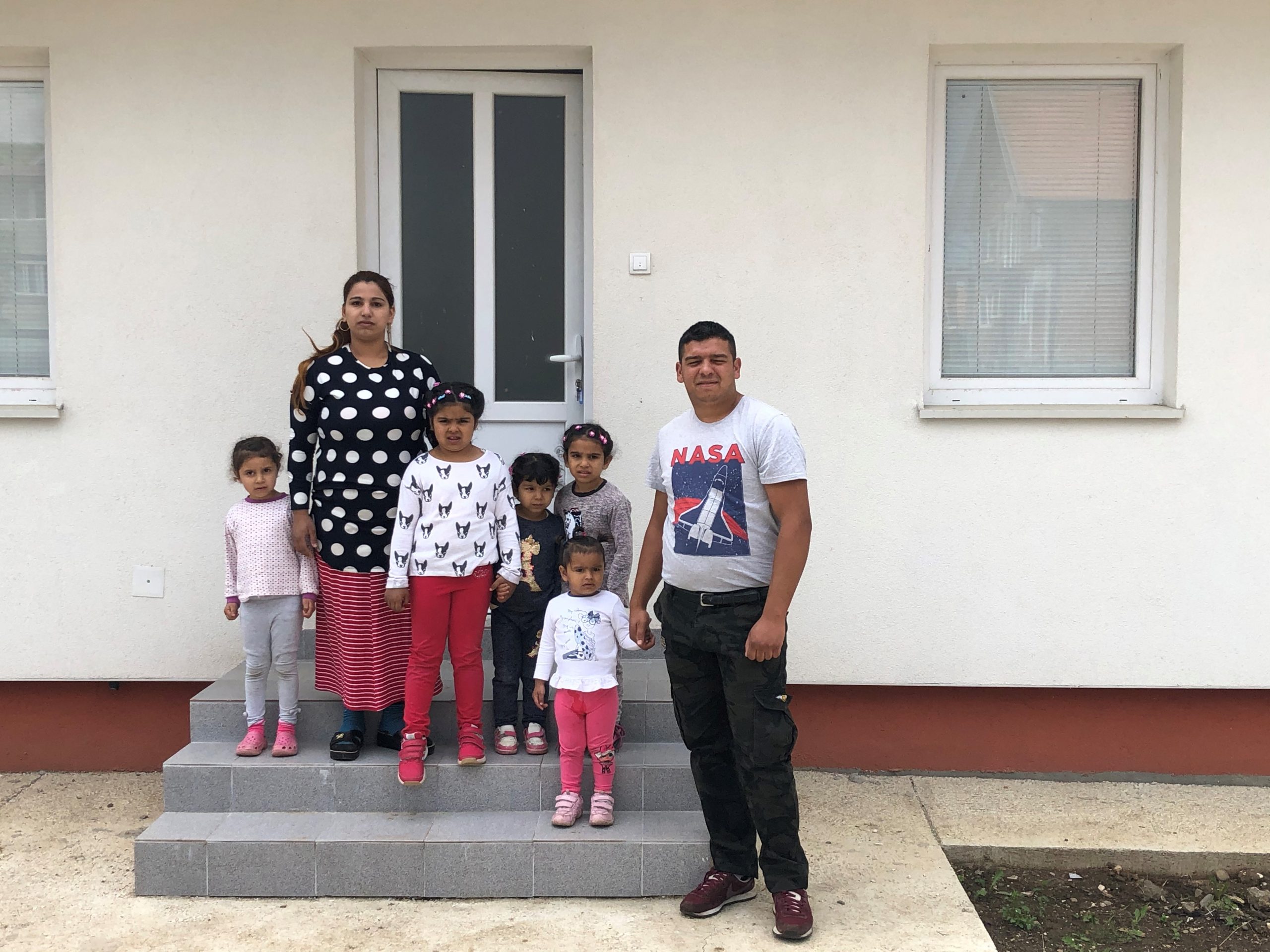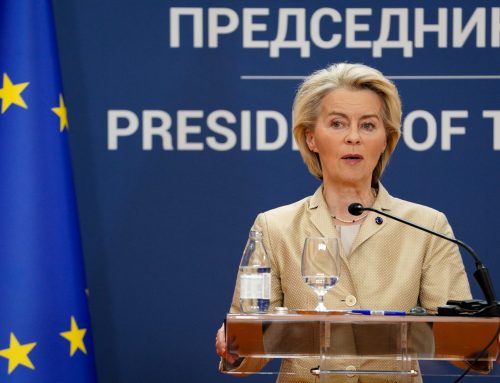The most vulnerable Roma families from Mala Guba neighbourhood in Prokuplje to move into new homes built within a European Union-funded project.
Since mid-1999, nearly three hundred internally displaced Roma have lived in temporary sub-standard or informal facilities in the settlement of Mala Guba on the outskirts of the City of Prokuplje. The Roma community in this neighbourhood has for years faced the issue of flooding of the Toplica river. In 2014 and 2016, members of this community were left without a roof over their heads due to floods.
To help the Roma who live in this neighbourhood, the City of Prokuplje, with financial support from the European Union, launched a project in 2017- Improved Living for Prokuplje Roma. “This complex and highly important project has helped not only to build a residential area with 12 residential buildings, but also to clean up the riverbeds of the Toplica and its small tributary, the Strazavacka reka, and erect over 400 metre long stone embankments to protect the newly built houses and the industrial zone in Prokuplje – which houses two factories employing over 4,000 workers – from floods,” said Mayor of Prokuplje Aleksandar Simonovic, adding that the European Union has invested nearly EUR1 million into this project; JVP Srbijavode participated in the project with RSD25 million, while the municipality of Prokuplje invested over RSD20 million to purchase building lots and adapt them for construction.
 Housing facilities in Mala Guba neighbourhood before the construction of new houses (photo: Igor Kostic)
Housing facilities in Mala Guba neighbourhood before the construction of new houses (photo: Igor Kostic)
The seven-member Amzic household is one the families that will move into a new home in the coming period. “I’m a physical worker and I lost my home in the flood in 2014. Thanks to project Improved Living for Prokuplje Roma I got a new house and managed to take care of my family. I am grateful to the European Union for this project,” said 24-year-old Renato Amzic, father of five.
Through this project, the municipality of Prokuplje has established close cooperation with representatives of the Roma community and the Association of Roma of Prokuplje, which acted as a partner in the project. The municipality continued to fund activities to engage Roma families from Mala Guba neighbourhood: the local self-government will financially support medical examination for all residents of the neighbourhood and their entry in the registry of births.
 Newly built over 400-metre long stone embankment that will protect the neighbourhood from flooding (photo: Igor Kostic)
Newly built over 400-metre long stone embankment that will protect the neighbourhood from flooding (photo: Igor Kostic)
Furthermore, through the project Educational centre for Roma Women, implemented with EU’s financial support by the municipality of Prokuplje and the Standing Conference of Towns and Municipalities—National Association of Local Authorities of Serbia (SCTM), over 60 Roma women will receive education on the subjects of child upbringing and responsible parenting, as well as pregnancy and marriage-related information, and learn about educational needs of children and opportunities for their further development and health.
Project Improved Living for Prokuplje Roma is implemented in cooperation with the Ministry of Construction, Transport, and Infrastructure and the Ministry of Finance, Department for Contracting and Financing of European Union-Funded Projects, through the programme Durable housing solutions and physical infrastructure improvements in Roma settlements. The programme was funded by the European Union and the Republic of Serbia with EUR9.5 million and EUR1.5 million, respectively.
The European Union has thus far invested over EUR30 million in Roma inclusion projects, implemented in cooperation with the Government of the Republic of Serbia, local self-governments, and civil society organisations. Thanks to EU support, the number of entries in the birth registry has increased, access to fundamental rights has been improved thanks to newly established mobile units, while the provision of grants has helped to strengthen Roma civil society. Also, specific activities have been carried out with the goal to improve the housing situation of the Roma community in several towns and municipalities in Serbia; find the most appropriate employment models for Roma; while special attention was paid to achieving permanent inclusion of Roma students in high schools. Since 2011, the European Commission has organised seminars dedicated to the social inclusion of Roma and the improvement of their status.




